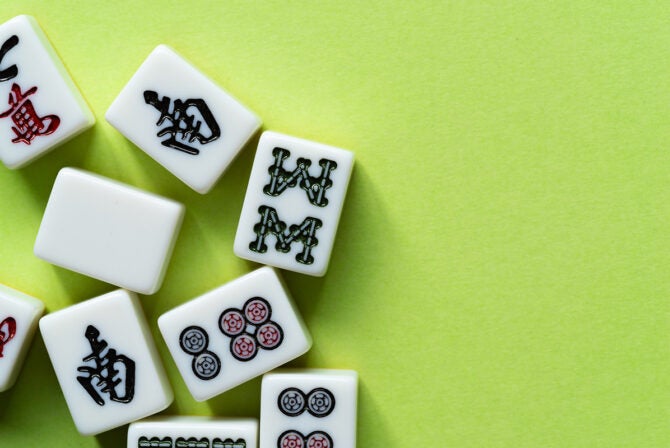I met my first week of everybody-being-at-home with a certain amount of fear.
After all, the reason we sent our 4-and-a-half-year-old to preschool is because we believe that the education that any of our kids deserve would be best provided by professionals, and in an atmosphere with other children. We’ve been delighted with the social and intellectual growth we’ve seen as a result of our little one’s learning, but suddenly something changed.
Yup: Coronavirus, yada yada, and now the preschool is shut down. I don’t expect it to reopen any time soon. This in itself leaves parents with a lot of unprecedented and unstructured time at home with their offspring. Though I am personally familiar with my kid’s preschool routine, and I’ve seen all the daily schedules that other parents are referencing on social media, the open-endedness of this time has felt very daunting. While certain minutes can feel like they last forever, I also know that every minute is another minute I could be hyper-focused on engaging our 14-month-old, or providing enrichment to our preschooler, or maybe, you know, actually attending to my paid job. The pressure is high.
Get Kveller's beautiful, step-by-step guide to experiencing Shabbat on your own terms. Order The Kveller Shabbat Guide here.
Still, despite being physically closed, our preschool is doing everything they can to keep the students connected. My eldest now spends a significant amount of time on Zoom calls with his peers: teachers read books aloud and show the pictures, the principal sings Passover songs and encourages the kids to sing along, and so on. On top of this, thanks to coronavirus completely clearing our schedules, I have arranged for our kids to spend time video-chatting with family we would rarely get to see in a busy week.
Indeed, screens are keeping us connected at this unprecedented moment. There’s all that computer time, and there are the phone calls I make and the text messages I compose — with guidance from our eldest — to help solidify each day’s video calls and plans. And at the end of a long day of telecommunications, there is a couch in our living room that longs to watch television in the company of loving humans.
That being said, like many parents, I have a love-hate relationship with blue light: the phone, the laptop, the television. I get addicted to these devices (probably because of the way that blue light messes with our hormones and cognitive functioning), and children seem to love these devices (probably because of the way that blue light messes with our hormones and cognitive functioning). And, once the blue light has taken hold of our children, our kids don’t want to let go either. (Have you ever seen a tantrum related to turning off a television, putting a computer to sleep, or removing a phone? I have heard that such things happen.)
By the time the kids’ bedtime hits at the end of a very long day attempting to make this time as enriching as possible — despite every possible COVID-19-related complication, like the playdates that can’t be in person, the playgrounds we can’t visit, the ice cream flavors that are out of stock — I feel spent.
But a very beautiful thing happened last weekend. At the end of a long week of the unfamiliar, Shabbat happened.
The blessed-and-cursed blue light that had eclipsed and defined what it meant to be human this past week suddenly faded away on Friday night. On the home front, we found ourselves experiencing a regular Shabbat, much like we did in pre-coronavirus times. When my spouse came home from synagogue (where she, the rabbi, was the only person who physically entered the sanctuary during the livestream), we sang Kiddush over grape juice, washed our hands for Netilat Yadayim, and recited HaMotzi before digging into challah. At nighttime, my spouse and I got to spend time together talking in a relaxed fashion, without worrying about the next urgent matter calling for our attention from behind some screen.
Saturday morning, we woke up, and, though I did not take the kiddos to the synagogue as I normally would, we sang a few short prayers, ate a sweet breakfast (to get a sweet taste of Shabbat), read books together, and played until my spouse returned home from another livestream. We had our typical afternoon combo of Kiddush, Netilat Yadayim, and HaMotzi, and ate a delicious lunch before we took turns napping. We capped off the afternoon with a walk. We had dinner, got the kids ready for bed, and ended what, to me, felt like the most normal day I have experienced since the coronavirus outbreak began to affect our area.
In fact, it just may have been the most amazing Shabbat of my life. I felt a sense of calm and familiarity, and I felt released from the ever-present, always-on blue light that has permeated our new, chaotic shut-in world.
Though I’m a rabbi, I never tell anyone that they must plan Shabbat according to all its traditional laws. But what I will say is this: If you ever feel your level of stress rise with all of the screens that are now all over your house, there is a way to make Shabbat a time in which screen stress is abated.
On Friday evening, in the moment that the blue light turns off, you and I might initially feel some serious buzzkill once the screen is out of our face. There are kids who might feel devastated, if not downright vengeful, when their beloved devices are taken away. But, just as we know that it is better for kids to spend a bit of time away from that bright, blue color, we also recognize that we, as adults, are better off without the screens on constantly. Convincing ourselves of this requires something of a mental (if not spiritual) practice. And if you want to rid your life of screen-stress, you can make a day out of this practice each and every week. You won’t be alone.
I grew up in a family that took Shabbat seriously — lighting candles, eating Shabbat meals, experiencing the world as it was (and not changing it), attending services at synagogue — but we still used television screens on Shabbat. I married into a screens-off on Shabbat family, and I am deeply grateful that my Shabbat is screenless now. I even got the sense that the youngest members of the household were relieved this past Shabbat when they were not bombarded with more blue light; I felt the house was just a bit calmer than I had noticed in the preceding days.
There are just as many ways to observe Shabbat as there are Jews who celebrate Shabbat. If you’ve never tried screenless Shabbat, or if you’ve never tried Shabbat, I’m pitching you an idea: If you need to destress with all the screens around you, try out the screenless Shabbat. Our Torah teaches that, when Moses first recorded divine commandments for the Israelites in the wilderness and read them those words, the Israelites responded, “Na’aseh venishma.” Literally that means, “We will do, and we will hear,” but a better translation is “We’ll give this a shot, and then we’ll make something meaningful out of it” (Exodus 24:7).
In a time of anxiety only exacerbated by bright lights and loud sounds, screenless-ness might be the Shabbat we need.
Image by chameleonseye/Getty Images








